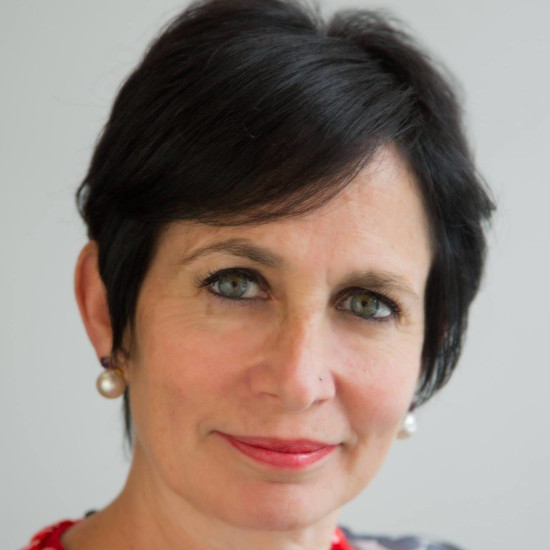We write this editorial statement as 2020 draws to the close, a year of dark and funny memes, tremendous loss, isolation, unexpected learning (everything from, “In fact I do not want to learn to crochet!”, “I have become a Haiku poet,” to “Wow Jamboard is so cool I would use it anyway”), and the most massive disruption to school learning that either of us has seen in our lifetime. We are transitioning from one presidential administration to another and we sit cautiously at the edge of hope (cautiously, as we will not exhale until Biden and Harris are installed in the White House on January 20, 2021). We sit at the edge of hope for a Department of Education that will help support teachers and schools through what are likely to be years of increased inequity and challenges emerging from the past year of the pandemic, hope for a less fractured, more unified and compassionate nation, and hope that science, human ingenuity, the arts, and hard work will allow us to return to a more normal life.
Surveying the current educational landscape, we note that it may be years before we fully understand how, and to what extent, the pandemic has contributed to widening inequities between populations of students, and which students will have paid the greatest price. We see the struggles around us, both among teachers and students – young people we know struggling mightily with depression, hopelessness, lost months of face to face learning in areas like math and literacy, and teachers we know struggling with exhaustion, depression, and anxiety (for their health if teaching face to face, for their students either way). Teachers and administrators have been asked to stretch shrinking resources and budgets to teach in ways they have little preparation for – some teaching both hybrid and face-to-face at the same time (which, we might argue, is pedagogically unsound) in order to meet personnel gaps. It is urgent that educational researchers investigate the experiences of both teachers and students during this crisis, elevating the voices of those who may be silenced during the crisis. This issue, comprised of articles written pre-pandemic, address many of the concerns that have been exasperated in 2020 – activism in the face of unjust and unsupportive policies, the importance of joyful teaching, and finding support in navigating policy. We are struck by the importance of agency that runs throughout all of these pieces, the importance of nurturing agency amongst teachers and students to do the work that matters most, as well as how research serves to support equity, investigating questions about policies and practices that can make our educational institutions and landscape more just.
These articles emphasize the ways that teachers are active, agents of change. Schroeder et al. write about activism in a time of Trump and DeVos, and how the 2016 election forced leaders of the Opt Out Florida Network movement to more explicitly focus on fighting for democratic public education, equitable schooling, and social justice. Sherman’s piece on joyful teaching, seems particularly relevant right now, noting the lower morale of teachers and a need to focus on creating a more joyful career, focused on the relational as well as the pedagogical. Finally, Lanford speaks to the experiences of adult learners in community college, examining their motivation for pursuing further education, as well as the vital supports needed to support their success, including strong relationships with faculty who are “sensitive to issues concerning race, gender, and age.”
These articles also speak to the importance of educational research that inquires into the experiences and voices of those whose agency is not always recognized in the learning process. A number of these pieces elevate the voices of those often omitted from educational research. Bittinger and Well’s piece about STEM aspirations for students with Individualized Educational Programs (IEP’s) reminds us not to make assumptions about what our students aspire to, and that inquiring into their goals and wishes can help us better serve them as students. Guo and Kuramchi focus on how children become active and agentic through play and learning in Japanese kindergartens. They describe how children’s learning is situated within a “dynamic praxis” of relationships, rules, and responsibilities. Torff and Kimmons examine previously unattended to aspects of teachers’ interactional style, how gender, experience, age, and educational attainment may inform those styles. In Hodge’s research about messages about equity in common core professional development, we see the urgency of considering how those messages might influence teachers understanding of policy, by making sense of policy through conceptions and sense-making of teachers who navigate it. Finally, Poole’s review of Carol Mullen’s book, Canadian Indigenous Literature and Art (2020), forefronts indigenous voices and “illuminates the deep connections between colonization and education.” She emphasizes how education is never neutral and the importance of including non-settler voices in the movement toward decolonization in education as well as society at large.
Over the course of the last nine months, through the pandemic, the recent Black Lives Matter protests against racial violence, as well as the inspiring national surge of voter advocacy during the election, we have been reminded of the power of agency, and in particular collective agency, and the ways in which doing something can provide people with a means to potentially heal. The articles in this issue illustrate that agency comes in many different shapes and sizes–there is no one way of taking action or a stand on issues of injustice. Whether loudly protesting a policy in the streets or nurturing joy in your kindergarten classroom, all actions are welcomed and embraced and lead to change. The key is to act.Notes on ContributorsEmily J. Klein is a former high school English teacher and current professor at Montclair State University in the Department of Secondary and Special Education. She is currently co-PI on the WIPRO Science Education Fellows grant that supports science teacher leadership in five districts in New Jersey The author of several articles on teacher professional learning, teacher leadership, and urban teacher residencies, she is deeply committed to the work and lives of teachers. Her first book Going to scale with new school designs: Reinventing high school, was published by Teachers College Press. Her second book, A year in the life of an urban teacher residency: Using inquiry to reinvent math and science education, was published by Sense Publishers in 2015.Monica Taylor is a feminist teacher educator, social justice advocate, and parent activist. She is a professor in the Department of Secondary and Special Education at Montclair State University. She has several publications on feminist pedagogy and research methodologies, teaching for social justice, teacher leadership, and urban teacher education. She is co-PI of the Wipro Science Education Fellows grant which supports science teacher leaders in five districts in New Jersey. Her most recent book, Playhouse: Optimistic stories of real hope for families with little children, describes a progressive parent cooperative school through the interwoven narratives of her own children and those of families for the last sixty years. Her commitments to fighting sexism, heteronormativity, and racism manifest in all aspects of her life. She advocates for her own children and New Jersey students as an organizer for Save Our Schools NJ. She also deeply values the work of the many teachers with whom she is in contact.
Notes on Contributors

Emily J. Klein is a former high school English teacher and current professor at Montclair State University in the Department of Secondary and Special Education. She is currently co-PI on the WIPRO Science Education Fellows grant that supports science teacher leadership in five districts in New Jersey The author of several articles on teacher professional learning, teacher leadership, and urban teacher residencies, she is deeply committed to the work and lives of teachers. Her first book Going to scale with new school designs: Reinventing high school, was published by Teachers College Press. Her second book, A year in the life of an urban teacher residency: Using inquiry to reinvent math and science education, was published by Sense Publishers in 2015.

Monica Taylor is a feminist teacher educator, social justice advocate, and parent activist. She is a professor in the Department of Secondary and Special Education at Montclair State University. She has several publications on feminist pedagogy and research methodologies, teaching for social justice, teacher leadership, and urban teacher education. She is co-PI of the Wipro Science Education Fellows grant which supports science teacher leaders in five districts in New Jersey. Her most recent book, Playhouse: Optimistic stories of real hope for families with little children, describes a progressive parent cooperative school through the interwoven narratives of her own children and those of families for the last sixty years. Her commitments to fighting sexism, heteronormativity, and racism manifest in all aspects of her life. She advocates for her own children and New Jersey students as an organizer for Save Our Schools NJ. She also deeply values the work of the many teachers with whom she is in contact.
